Ageing population in Japan leaves schools with empty classrooms
As the number of students falls across Japan, a recent ceremony saw only two final graduates before the school closed
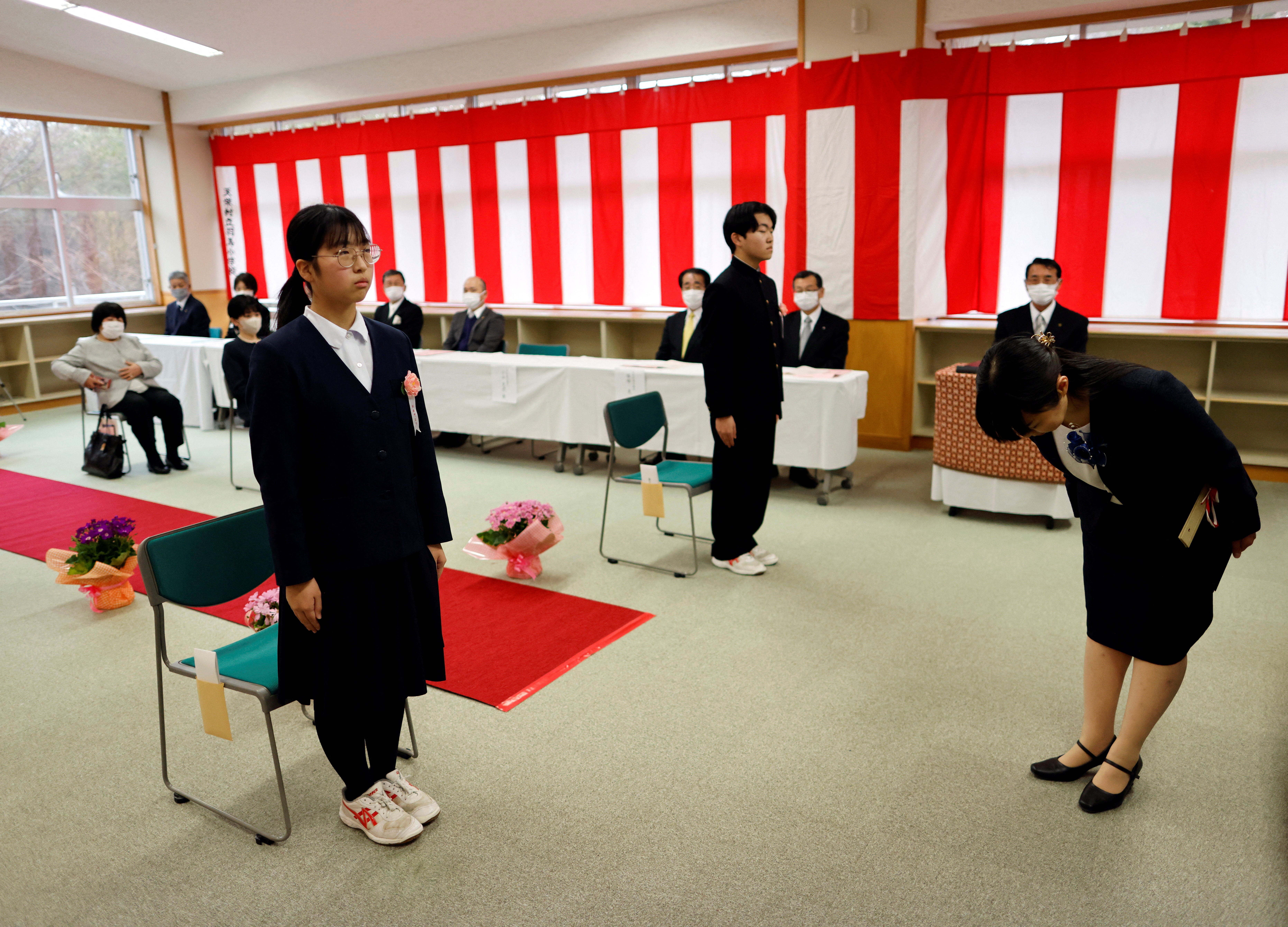
Your support helps us to tell the story
From reproductive rights to climate change to Big Tech, The Independent is on the ground when the story is developing. Whether it's investigating the financials of Elon Musk's pro-Trump PAC or producing our latest documentary, 'The A Word', which shines a light on the American women fighting for reproductive rights, we know how important it is to parse out the facts from the messaging.
At such a critical moment in US history, we need reporters on the ground. Your donation allows us to keep sending journalists to speak to both sides of the story.
The Independent is trusted by Americans across the entire political spectrum. And unlike many other quality news outlets, we choose not to lock Americans out of our reporting and analysis with paywalls. We believe quality journalism should be available to everyone, paid for by those who can afford it.
Your support makes all the difference.As Eita Sato and Aoi Hoshi walk towards their junior high school graduation ceremony, their footsteps echo in polished halls once crowded and noisy with students.
The two are the only graduates of Yumoto Junior High in a mountainous part of northern Japan – and the last. The 76-year-old school will shut its doors for good when the school year ends.
“We heard rumours about the school closure in our second year, but I didn’t imagine it would actually happen. I was shocked,” Eita, who like Aoi is 15, says.
As Japan’s birthrate plunges faster than expected, school closures have picked up pace, especially in rural areas like Ten-ei, a mountainous skiing and hotspring area in Fukushima prefecture, dealing a further blow to regions already struggling with depopulation.
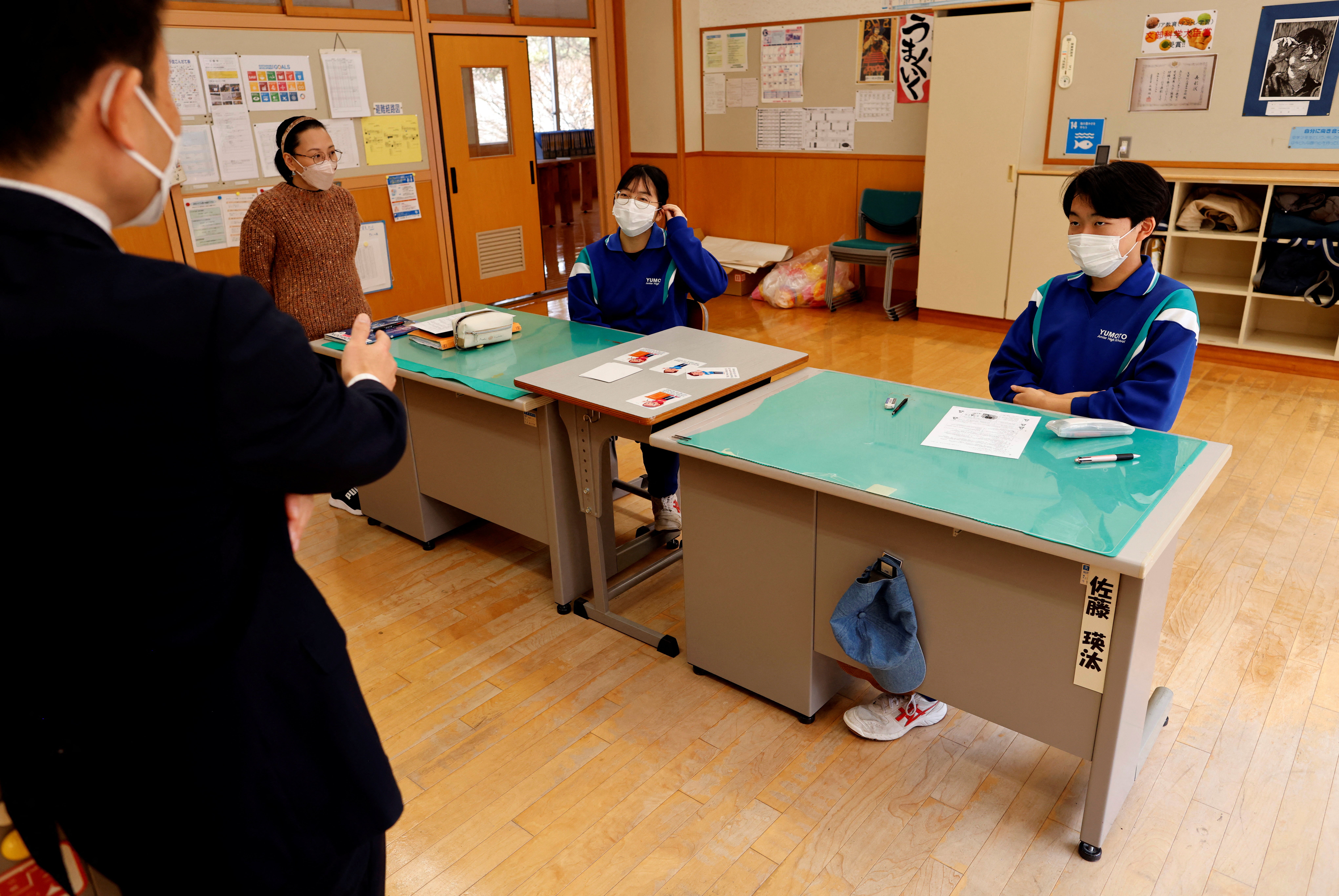
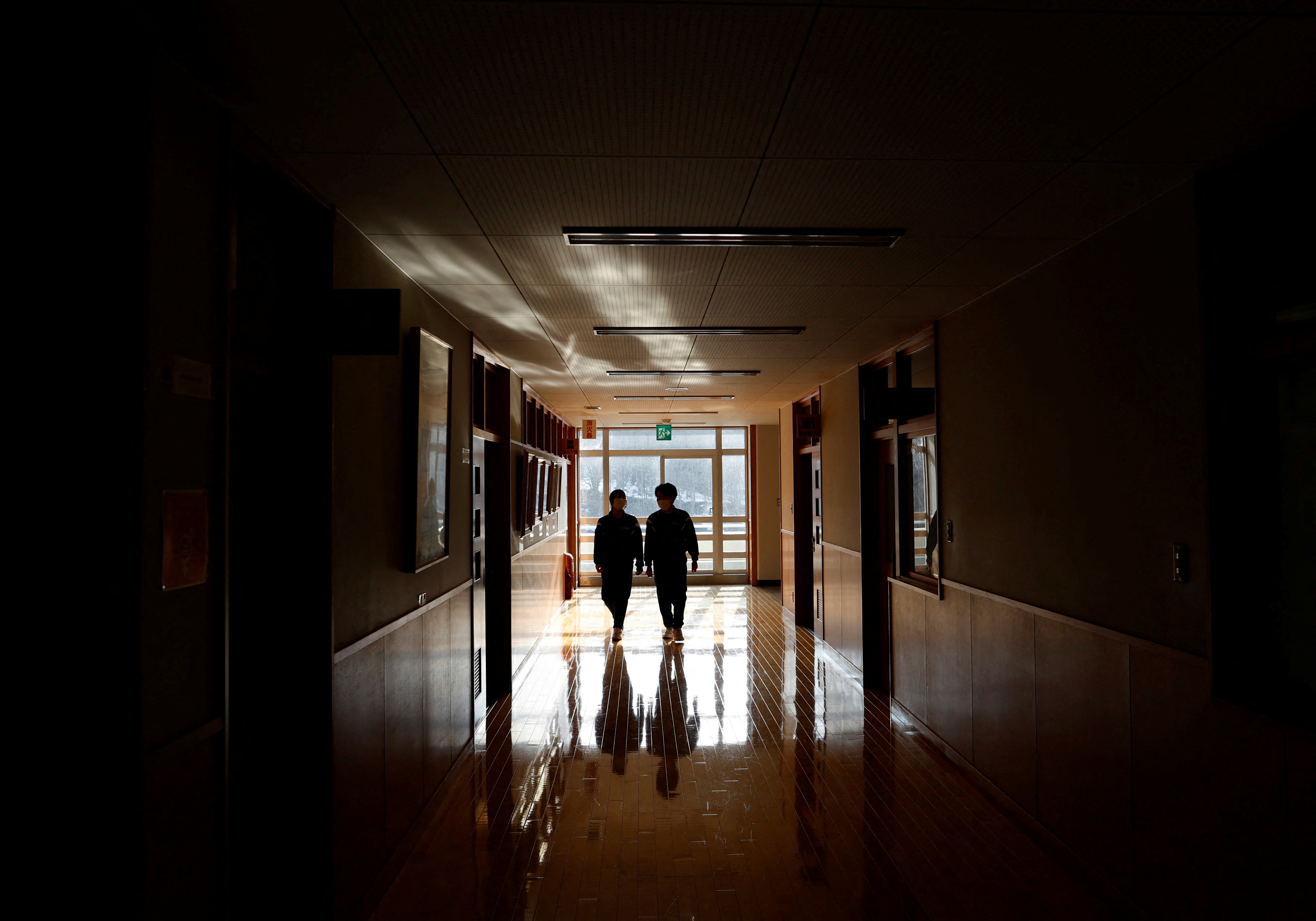
Falling births are an Asian regional issue, with the costs of raising children dampening birthrates in neighbouring South Korea and China. But Japan’s situation is especially critical.
Prime minister Fumio Kishida has pledged “unprecedented measures” to boost the birthrate, including doubling the budget for child-related policies, and says maintaining the educational environment is crucial.
But little has helped so far. Births tumbled below 800,000 in 2022, a new record low, according to government estimates and eight years earlier than expected, dealing a knockout blow to smaller public schools that are often the heart of rural towns and villages.
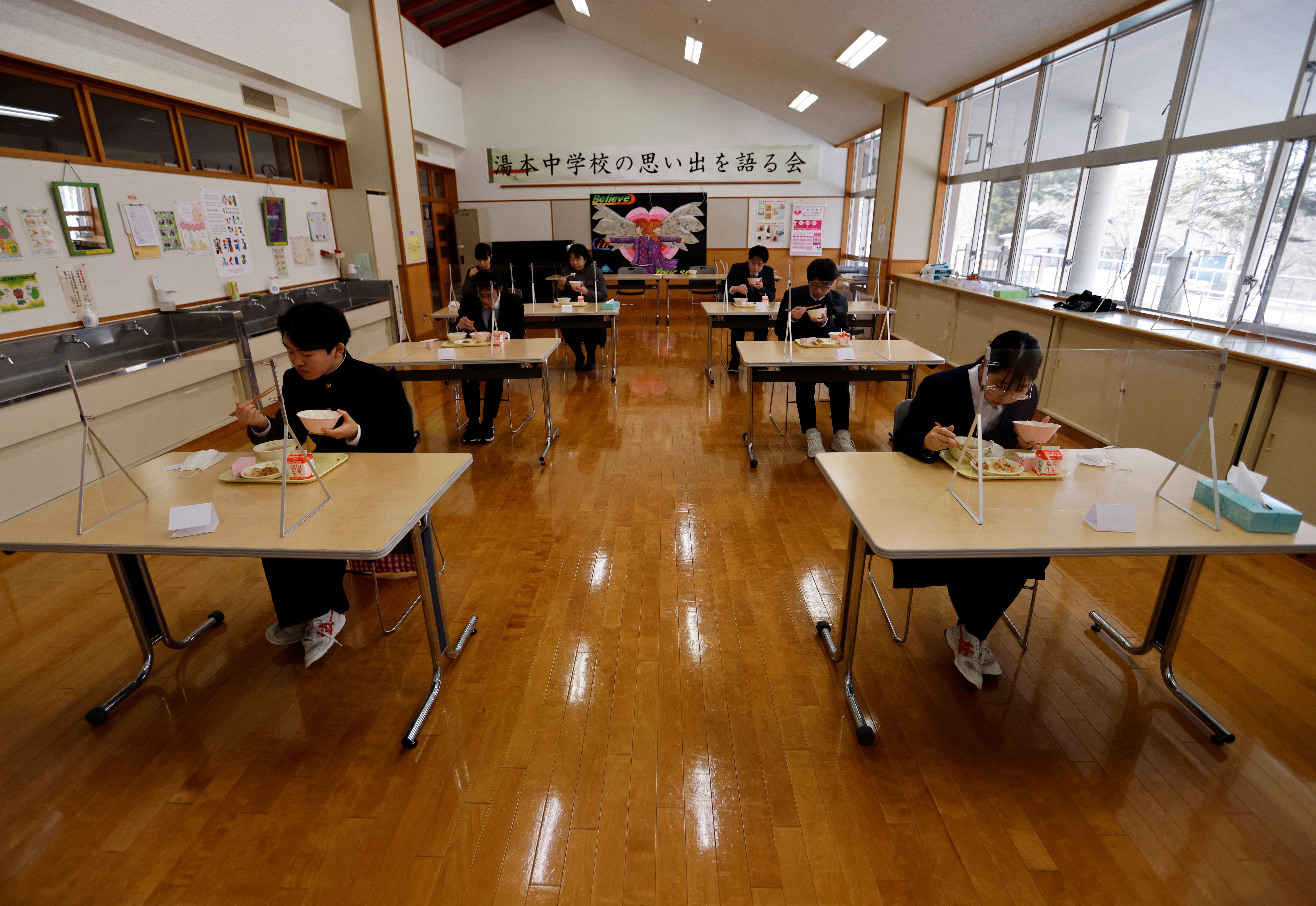
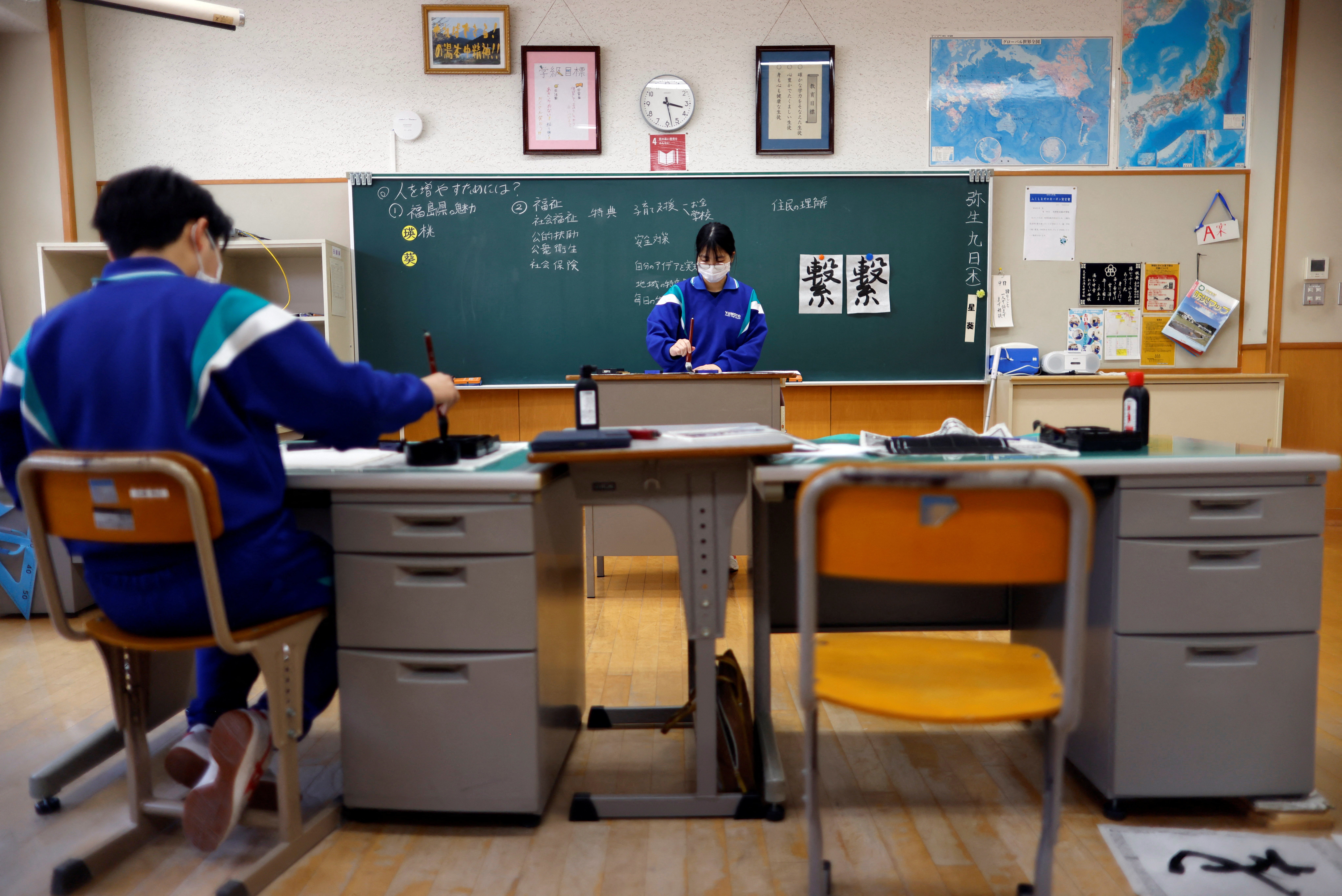
About 450 close every year, government data shows. Between 2002 and 2020, nearly 9,000 shut their doors forever, making it hard for remote areas to lure in new and younger residents.
“I’m worried that people won’t consider this area as a place to relocate to start a family if there is no junior high school,” says Eita’s mother Masumi, also a Yumoto graduate.
Fighting gives way to friendship
Ten-ei, a village of just under 5,000 residents with only around 10 per cent under the age of 18, is in a quiet rural area known for its rice and sake. The Yumoto area has hot spring inns on the mountains and is dotted with ski rental shops and campsites. There are also “beware of bears” signs.
The village at its peak in the 1950s had more than 10,000 residents, supported by agriculture and manufacturing. But the area’s remoteness prompted residents to leave.
Depopulation picked up speed after the 11 March 2011 disaster at the Fukushima Dai-ichi nuclear plant less than 100km (62 miles) away, with Ten-ei suffering radioactive contamination that has since been cleaned up.
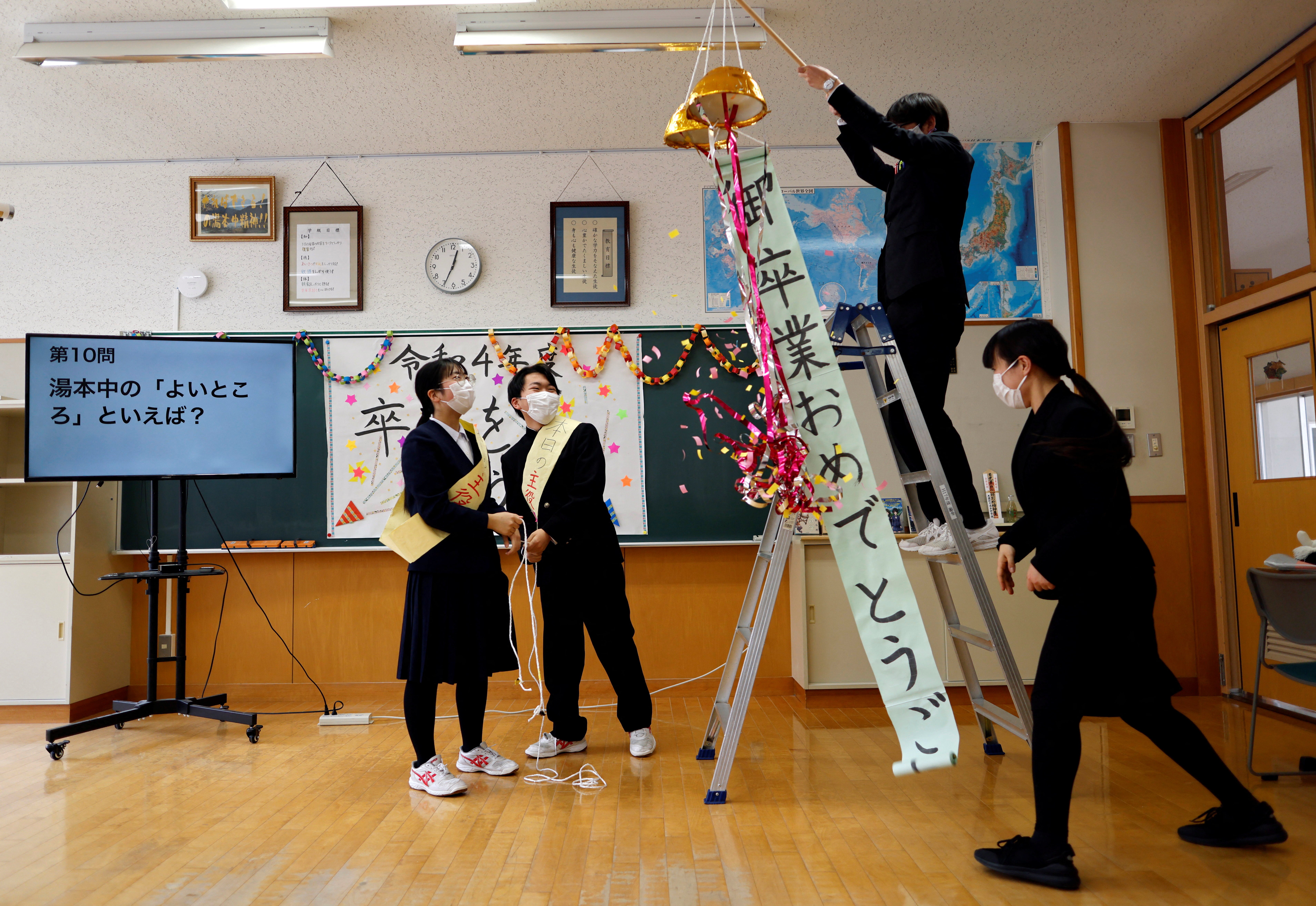
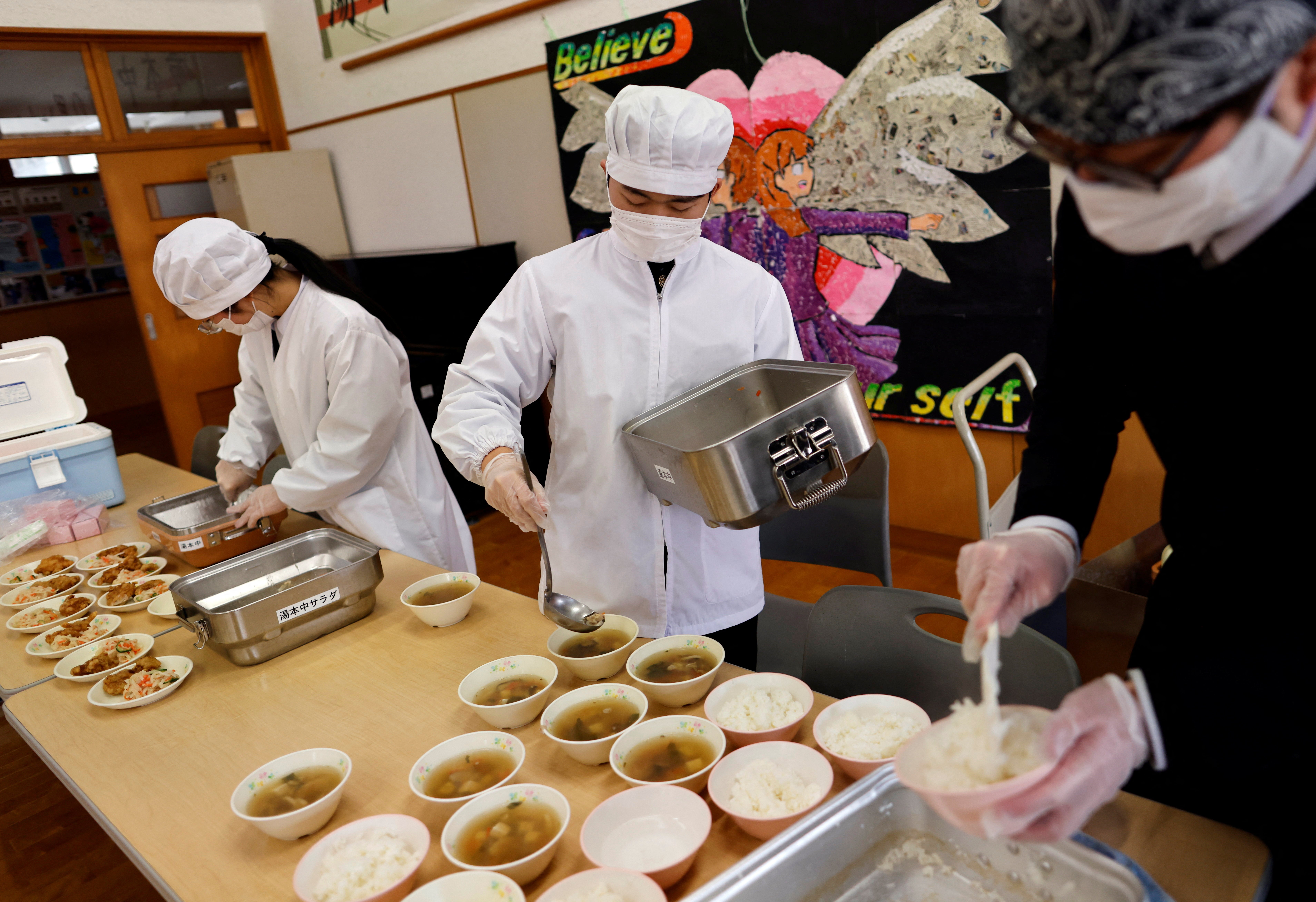
The Yumoto school, a two-storey building located in the centre of the district, had some 50 graduates a year during its heydey in the 1960s.
Photos of each graduating class hang near the entrance, going from black and white to colour – with the number of students visibly and suddenly dropping from around 2000. There is no picture from the last year.
Eita and Aoi, together since three, were in a five-person class through elementary school but were the only two to go on at Yumoto. Their desks sat side-by-side in the centre of a classroom designed for 20, and during their first year they “fought a lot”, Eita says.
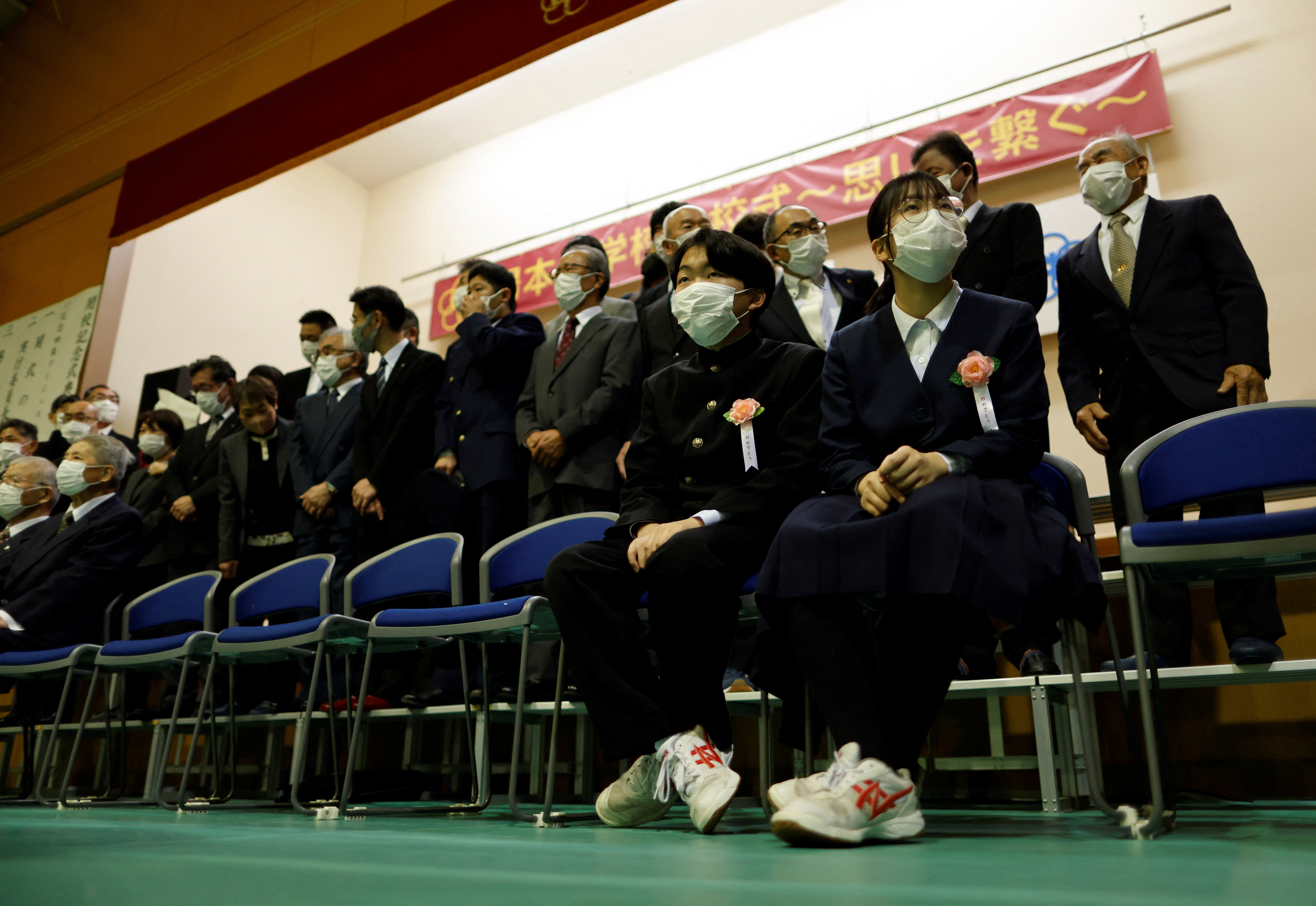
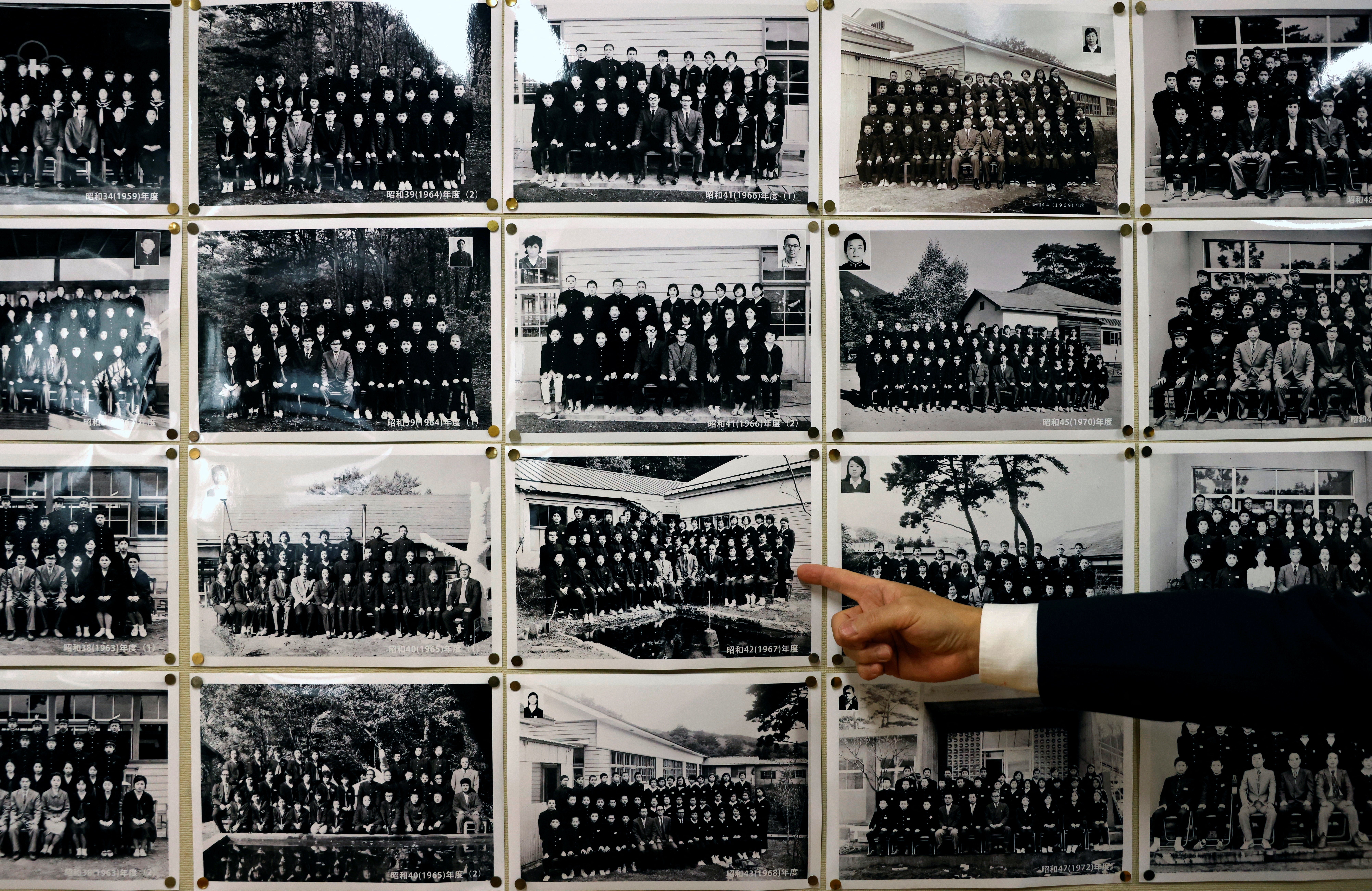
But tensions eased and they adapted, trying to simulate a normal school experience. For the afterschool club activity that is a key part of Japanese schooling, they selected pair sports, mainly table tennis.
On graduation day, teachers pinned corsages on the laughing graduates, usually a job for younger students.
“People are very disappointed there’s no longer a source of culture,” says principal Mikio Watanabe of the decision to close, taken in consultation with village residents. “The place will be quieter without children’s voices.”
Experts warn that rural school closings will widen national disparities and put remote areas under more pressure.
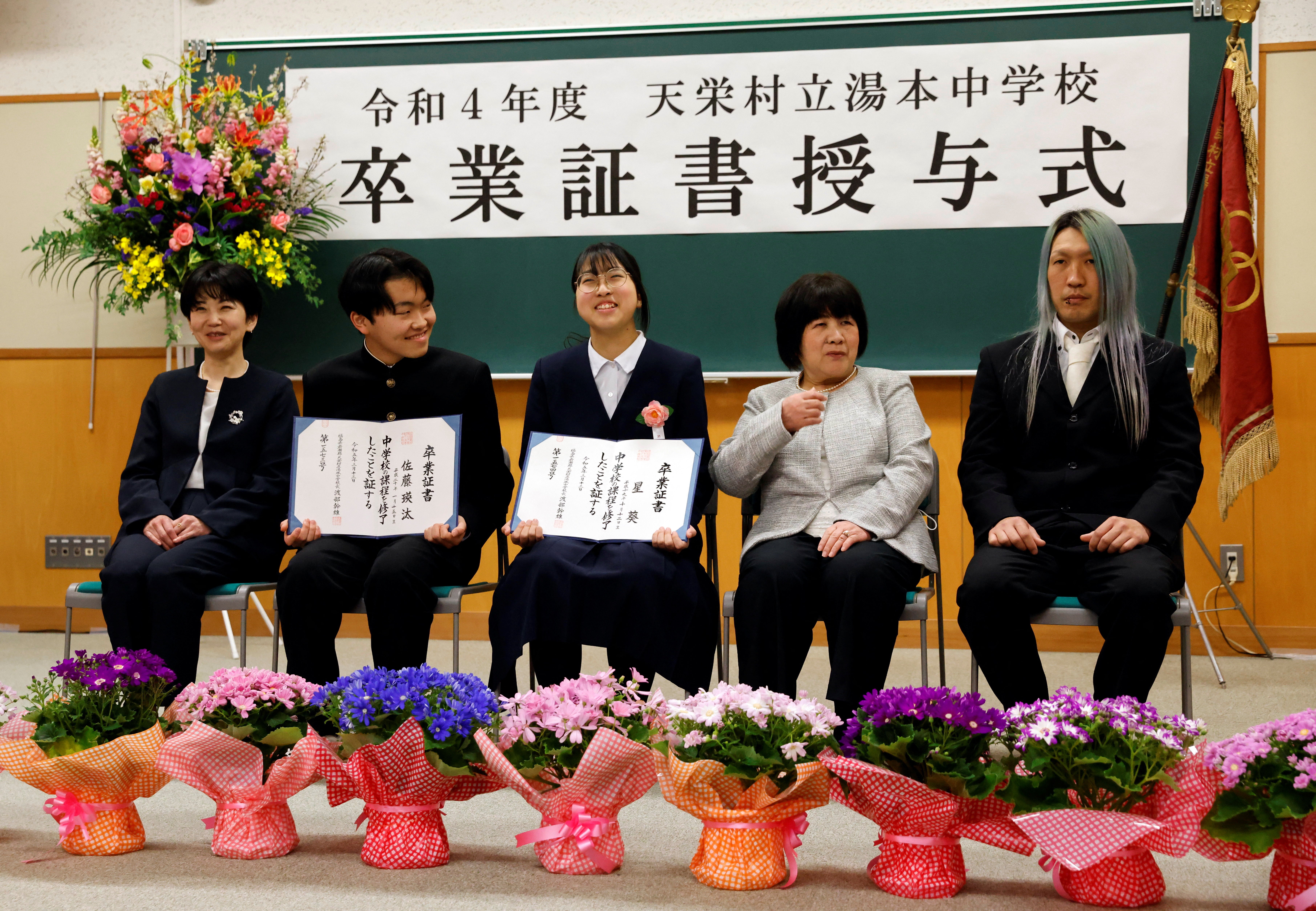
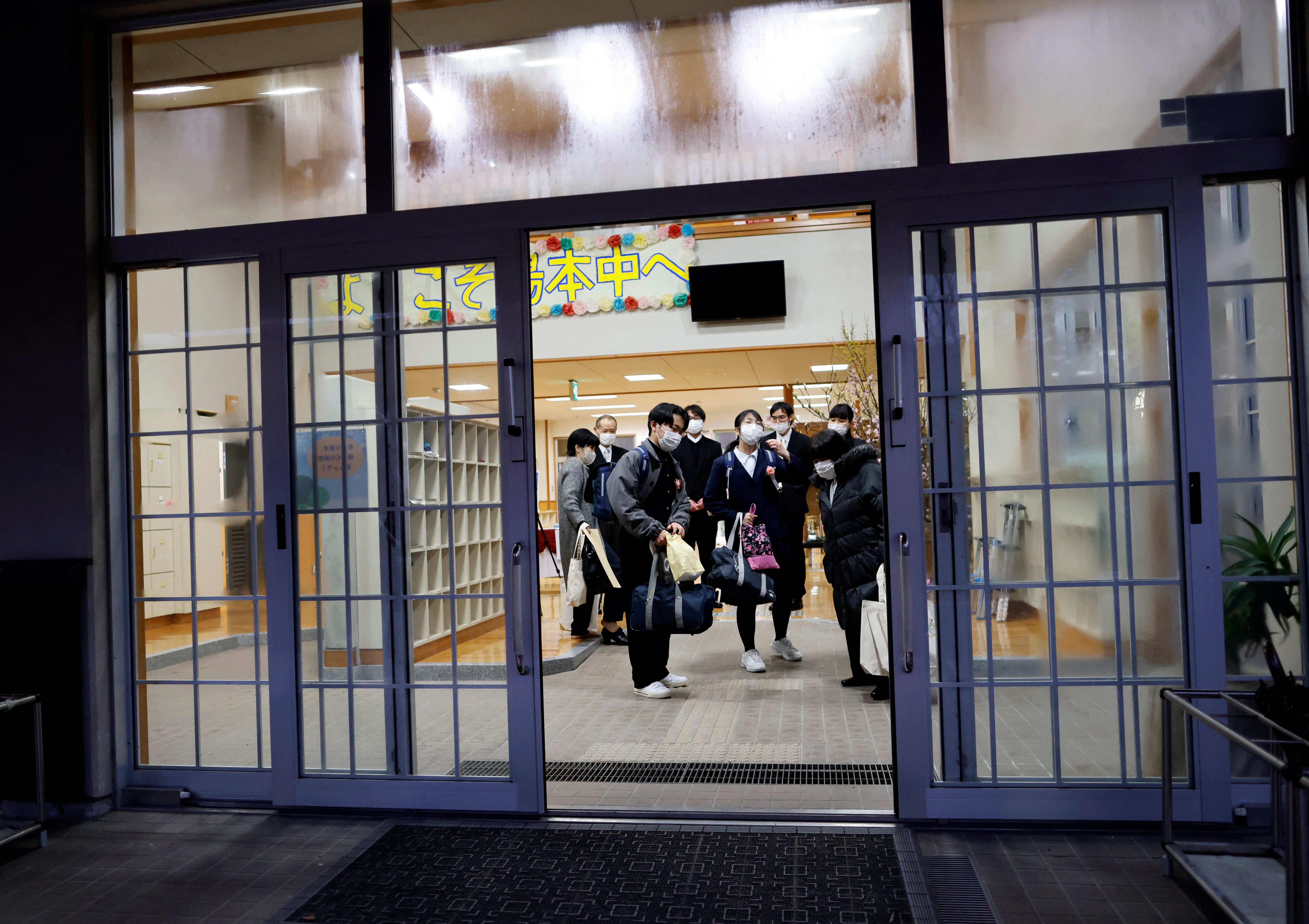
“The school closure means the municipality will eventually become unsustainable,” says Touko Shirakawa, a sociology lecturer at Sagami Women’s University.
Ten-ei will discuss repurposing the school building. In other parts of Japan, closed schools have become wineries or art museums.
Aoi, who dreams of being a nursery school teacher in her hometown, will attend a different school from Eita, starting this month. “I don’t know if there will be any children in the village when I am a teacher,” Aoi says. “But if there are, I want to come back.”
Reuters
Join our commenting forum
Join thought-provoking conversations, follow other Independent readers and see their replies
Comments